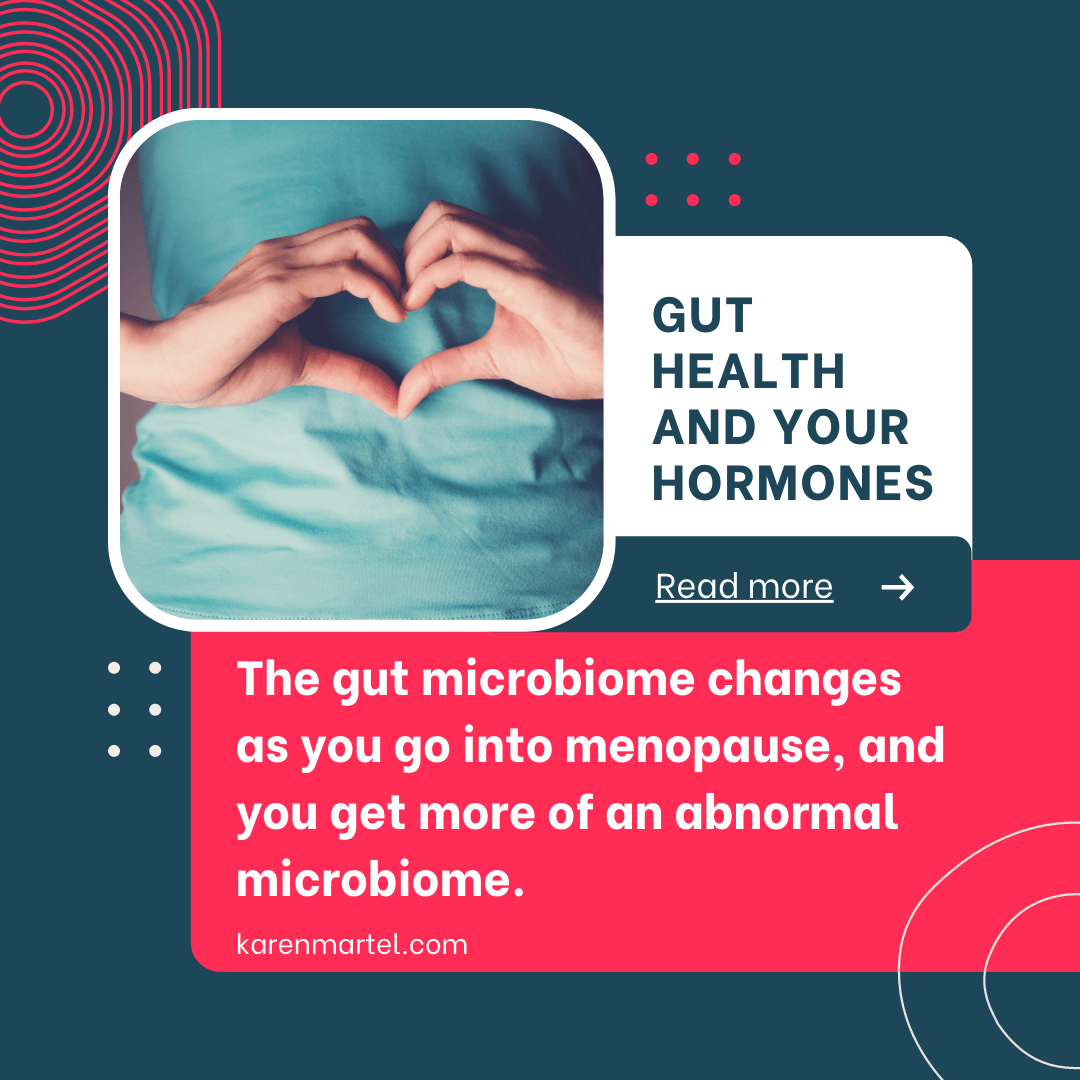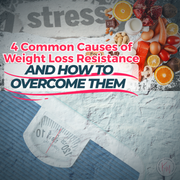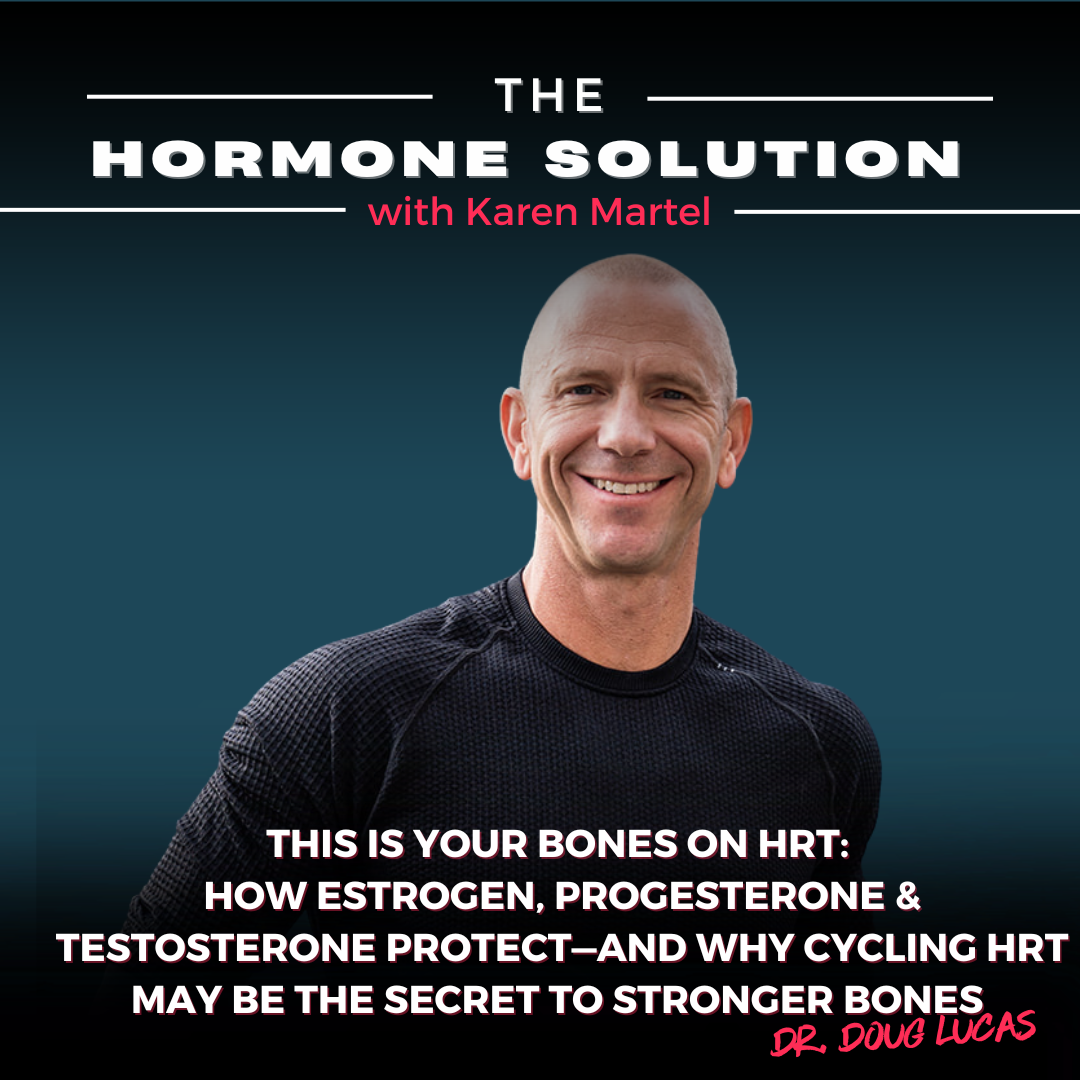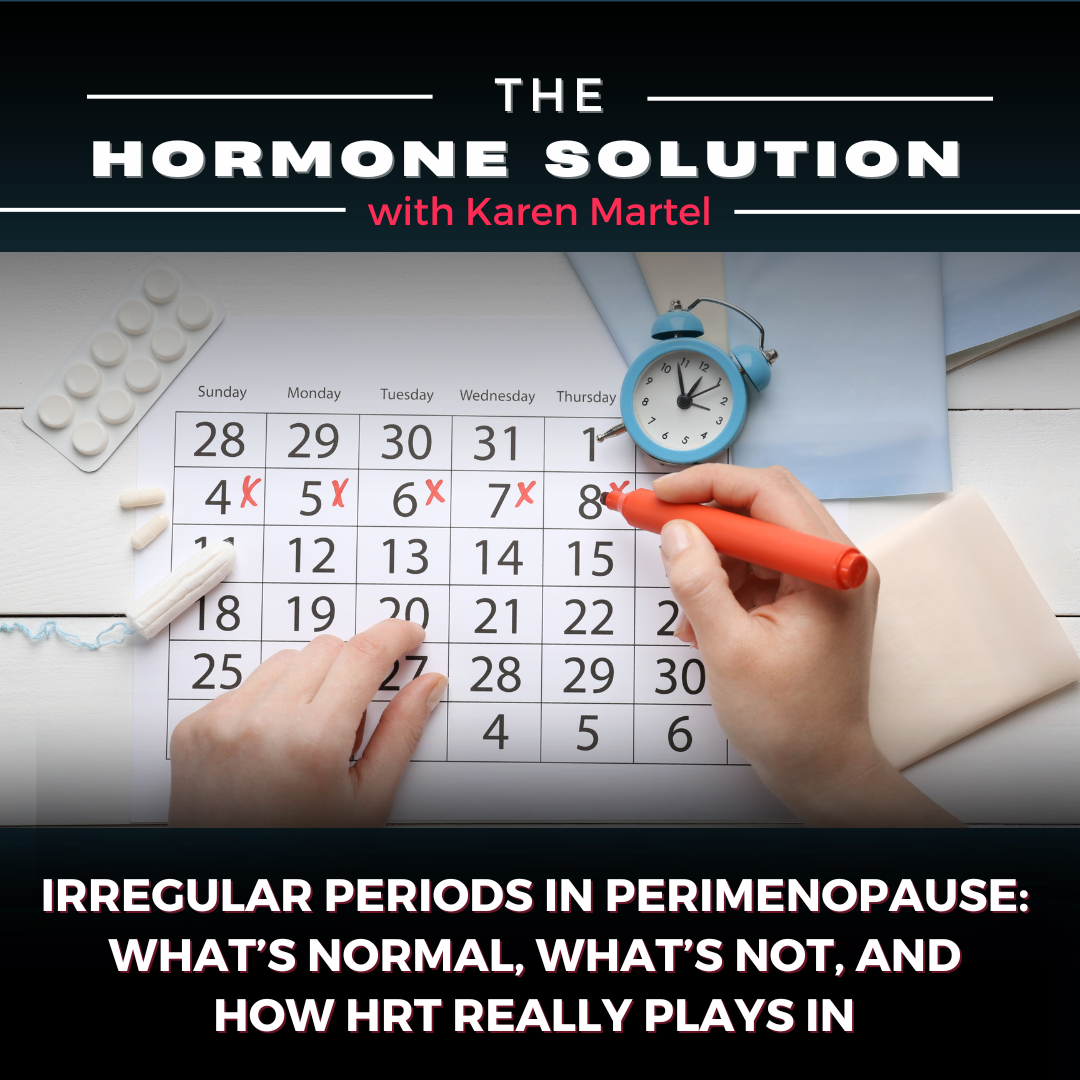
Gut Health and Your Hormones
Whoever said, “women age like fine wine,” failed to mention the unpleasant changes that many women experience as they age. There is growing research shows that the bacteria in your gut influence your hormones more than you might think.The truth is that 75 percent of women experience menopausal symptoms, a quarter of them describe their symptoms as severe. There are many things we can appreciate as we get older, however mood swings and other unpleasant changes do not make the cut. But do those changes have to be so disruptive, frustrating, even painful?A large body of research suggests that based on what scientists now believe about the gut microbiome – it is not limited solely to digestive health - it affects almost every physiological process in the human body and may affect your overall health in multiple ways.
Here are just a few examples before we dive in: 95% of serotonin is produced AND stored in the gut. Serotonin regulates mood, cognitive function, sleep and more.70% of the immune systems is located in the gut. Gut bacteria affectsmetabolism , which is the storage, utilization and distribution of energy. Ultimately, a healthy gut equals healthy metabolism and the ability to lose or maintain a healthy weight. Scientists continue to discover other functions of gut bacteria beyond what was originally thought.
One example of this is the effect that the gut microbiome has on the hormones and hormonal balance. So, what is the “gut” and where is it anyway? Have you ever heard of someone say they have they have a “gut” feeling or “trust your gut instinct”? You may be surprised to know there is actual physiologic truth to those statements because of how the gut is connected to the brain.
The gut is not a single location but rather the entire digestive tract starting at the mouth through to the colon. There are trillions of microbes in the gastrointestinal tract, 90% of which are bacterial. When it comes to good health, maintaining balance between “good” bacteria and “bad” bacteria is a numbers game. When the “good” kind or “friendly” bacteria outnumber the “bad”, life is good and we are healthy. Sound pretty intuitive, right? Well, it is and it isn’t. The tides of health are changing and millions of people are taking charge of their own bodies. People are trying to make better decisions by educating themselves on how to enjoy better health, live a longer, high-quality life.
Yet, the lifestyle sins in earlier decades of late nights, highly processed food and sugar, inflammatory fats, chronic stress, lack of restorative sleep, too much alcohol, taking antibiotics, and hormonal birth control pills, have, over time disrupted the balance of or increased the presence of harmful bacteria. Imbalance in gut bacteria, or dysbiosis, inhibits proper absorption of nutrients, decreases permeability of the gut lining leading to endotoxemia or “leaky gut”.
Other symptoms of an unhealthy gut are:
- gas/bloating
- alternating bouts of diarrhea and constipation
- acid reflux
- food sensitivities
- skin rashes/eczema
- acne
- candida
- chronic inflammation
- sinus congestion
- allergies
- headaches
- depression
- brain fog
- memory issues
- vitamin deficiencies
- autoimmune disorders
- compromised immune system
and hormonal imbalances to name a few.
Some diseases associated with poor gut health are
- obesity
- irritable bowel syndrome (IBS)
- inflammatory bowel diseases like ulcerative colitis and Crohn’s disease
- celiac disease
- fatty liver disease
- heart disease
- colorectal cancer
- Parkinson’s disease
- polycystic ovary syndrome
and dementia.
What is the connection between gut health and hormones?
Let’s discuss estrogen first. The estrobolome is a branch of the microbiome. It is a collection of bacteria that produce beta-glucuronidase, an enzyme that breaks down estrogens into their active and unbound (not connected to a protein) form to be used by the body in estrogen-dependent processes, such as reproductive functions, cardiovascular health, bone health, fat and glucose metabolism. The estrobolome is dedicated to maintaining estrogen balance through metabolism and modulation.
So, what happens when the estrobolome gets out of whack?
In post-menopausal women, the estrogen-dependent functions mentioned earlier are impaired. There is an increased risk of obesity, cardiovascular disease and osteoporosis. Low beta-glucuronidase activity can increase the severity of the low estrogen state in post-menopausal women increasing their risk further for chronic disease. The gut microbiome changes as well as you go into menopause, and you get more of an abnormal microbiome, which causes leaky gut – which then promotes even inflammation and further health problems.
Endometriosis has been linked to poor gut health. It has been noted that the estrobolome of women with endometriosis may have higher numbers of beta-glucuronidase-producing bacteria leading to excessive levels of circulating estrogen in the body, which is a driver for endometriosis.
In women with PCOS or Polycystic Ovary Syndrome, there is an excess of androgen hormones in relation to estrogen as well as gut dysbiosis. Researchers have a theory that gut dysbiosis promote increased androgens and decreased estrogen levels due to lowered beta-glucuronidase.
There has been an abundance of research in recent years linking poor gut health to various forms of cancer. Not only do cancer patients have a highly imbalanced gut bacterium, but it leads to increased beta-glucuronidase activity and increased levels of circulating estrogen. When too much estrogen binds to the estrogen receptors in the body, it causes the cells to grow out of control. It is very evident that there is a very delicate and intricate relationship between a healthy gut and estrogenic activity.
It is also worth mentioning that mood swings are also a sign that your gut is asking for help. Most of us know that we need melatonin for a good night’s sleep. It brings on the tired feeling we should have at nighttime and helps us fall asleep and stay asleep. In order for our bodies to produce melatonin, we heed to have lots of serotonin, (the “happy” hormone) which 90% of it is produced by the bacteria in the gut.
Imbalances in the gut have a negative effect on sleep and lack of sleep has a negative effect on the gut. If you have trouble sleeping, do you hear what your gut is saying? During occasional times of stress, the body produces cortisol, epinephrine (or adrenaline), and norepinephrine causing the flight or fight response. This is a good thing in times of an emergency. However, chronic high levels of stress hormones can change the dynamics of the gut microbiome even triggering the harmful expression of some microbes.
In animal studies, high adrenaline and norepinephrine levels stimulated a full-blown infection by increasing the severity of some bacteria or viruses. Have you ever felt run down or come into contact with an illness or cold after an intense, stressful situation? If so, then you have had first-hand experience of how stress affects the gut and immune system.
What can we do to improve gut health and enjoy the benefits to our hormones? Eliminating refined sugar. Refined sugar is food for bad bacteria and creates an environment for it to grow and flourish. Avoid creating a home for harmful overgrowth of bad bacteria and leave the sugar alone. Eat a variety of organic vegetables and fruit. (Organic whenever possible) A diverse diet of plants helps promote the growth of “friendly” bacteria like lactobacilli, as do fermented foods. Plain yogurt, kefir, kimchi, sauerkraut, miso, and tempeh are good sources. Pre-biotic foods like garlic, onions, asparagus, banana, flax seeds and apples provide the food for good bacteria to grow in healthy numbers. Resistant starch (resists digestion) also provides fiber and prebiotics. Cooked and cooled potatoes and rice, green bananas and legumes contain resistant starch. Supplementation with broad-spectrum probiotics have been found to restore gut balance.
Research indicates that it may be possible to modulate the estrobolome and reverse estrogen-related pathologies through probiotic supplementation.
- Supplementation with a broad-spectrum Lactobacillus probiotic has been found to normalize the estrous cycle and decrease testosterone biosynthesis in an animal model of PCOS. (1)
- In an animal model of endometriosis, Lactobacillus gasseri suppressed ectopic tissue growth, which is an estrogen-driven process. (2)
- In a menopausal mouse model of osteoporosis, Lactobacillus reuteri prevented bone loss resulting from low estrogen. (3)
- Lactobacilli have anticarcinogenic effects in breast tissue, suggesting that supplementation may be useful for the prevention of breast cancer. (4)
A healthy gut can increase your chances of healthy aging. Find out what you can do today to improve your gut microbiome and your life for the long term by joining theOnTrack women's hormone balancing and weight loss program.

Find Karen Martel on Apply Podcast
Karen Martel is a Certified Hormone Specialist and Transformational Nutrition Coach dedicated to empowering women through their health journeys.
As the host of the popular podcast The Hormone Solution, Karen tackles the complexities of hormonal health, weight loss resistance, and the challenges that come with perimenopause and menopause.
Her mission is to disrupt outdated narratives surrounding women's health, providing reliable information and practical solutions that help women reclaim their vitality.
Tune in to discover how to embrace life's stages while enhancing overall well-being.





